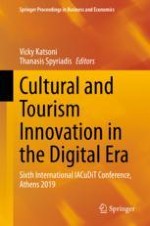This book explores a wide range of emerging cultural, heritage, and other tourism issues that will shape the future of hospitality and tourism research and practice in the digital and innovation era. It offers stimulating new perspectives in the fields of tourism, travel, hospitality, culture and heritage, leisure, and sports within the context of a knowledge society and smart economy. A central theme is the need to adopt a more holistic approach to tourism development that is aligned with principles of sustainability; at the same time, the book critically reassesses the common emphasis on innovation as a tool for growth-led and market-oriented development. In turn, fresh approaches to innovation practices underpinned by ethics and sustainability are encouraged, and opportunities for the exploration of new research avenues and projects on innovation in tourism are highlighted. Based on the proceedings of the Sixth International Conference of the International Association of Cultural and Digital Tourism (IACuDiT) and edited in collaboration with IACuDiT, the book will appeal to a broad readership encompassing academia, industry, government, and other organizations.
